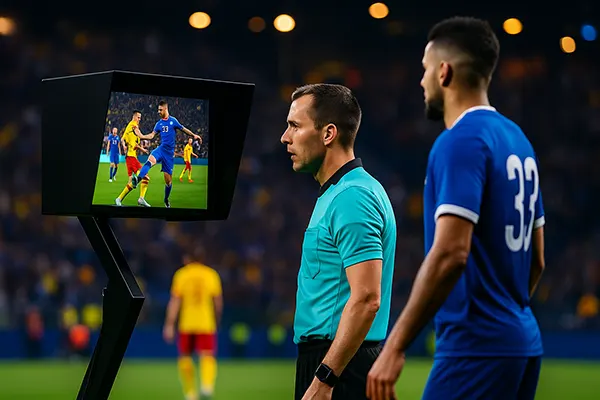
Trends in VAR Betting in Football: Impact of Video Reviews on Goals and Totals
Video Assistant Referee (VAR) has become one of the most significant developments in modern football. Since its official introduction in major competitions, it has not only changed the way referees make decisions but has also influenced betting markets, particularly in terms of match result predictions, total goals, and goal-related statistics. In this article, we explore how VAR impacts betting trends, focusing on goal-scoring and totals markets.
The Evolution of VAR in Modern Football
The implementation of VAR was intended to reduce human error and improve fairness in decision-making during matches. Initially used during the 2018 FIFA World Cup, VAR now features in the top European leagues, international tournaments, and numerous domestic competitions worldwide.
Its primary role is to assist referees in four key areas: goals, penalties, red cards, and mistaken identity. Each of these moments has a direct bearing on the outcome of a game and, by extension, the betting odds and markets.
For instance, the delay caused by VAR checks may affect the rhythm of the game, potentially reducing or increasing attacking momentum. These subtle changes impact the likelihood of goals and, consequently, betting outcomes.
VAR’s Effect on Match Rhythm and Goal Timing
One of the noticeable effects of VAR is the disruption in the flow of the game. When players are unsure if a goal or penalty will be upheld, it can lead to periods of hesitation or frustration, which can diminish attacking confidence.
This factor may reduce the number of early goals, especially in leagues where VAR checks are frequent and lengthy. Punters who focus on “goal in first 10 minutes” markets have increasingly seen lower conversion rates.
However, the additional stoppage time added due to VAR delays can lead to more goals in injury time. Bettors focusing on “goal after 90 minutes” or “added time goal” markets may find increased value due to this dynamic.
Impact of VAR on Total Goals and Over/Under Markets
VAR has brought a significant level of unpredictability to total goal markets. Penalties awarded after reviews can lead to sudden scoring opportunities, altering expected goal counts. On the flip side, disallowed goals due to marginal offsides or fouls can reduce totals significantly.
In the 2022/23 Premier League season, for example, 25 goals were disallowed following VAR reviews, while 21 penalties were awarded via VAR intervention. This data illustrates how VAR can drastically influence over/under 2.5 goals markets.
As a result, experienced bettors now incorporate VAR frequency data into their models. Understanding how often a particular league or referee uses VAR can give a more accurate assessment of the likelihood of goals.
Adjusting Betting Models to Account for VAR
Professional bettors increasingly factor VAR intervention rates into their pre-match and in-play betting decisions. This includes accounting for goal disallowances and unexpected penalty awards.
In matches with referees known for heavy VAR reliance, under bets have shown higher win rates due to the potential for disallowed goals. Conversely, games between aggressive teams may see more penalties and red cards, raising the appeal of over bets.
Moreover, VAR has introduced a psychological element, as players tend to adapt their behaviour when under constant surveillance. This behavioural change can subtly influence goal dynamics and match tempo, key aspects for informed betting decisions.

Strategic Implications for Bettors and Market Trends
Bookmakers have adapted their algorithms to reflect the volatility introduced by VAR. This includes dynamic pricing on penalty-related markets, goals in added time, and specific referee-influenced props.
As data becomes more comprehensive, bettors who analyse VAR-related metrics can gain an edge. This includes reviewing historical VAR interventions, penalty conversion rates, and team discipline profiles.
Notably, live betting has become a hotspot for exploiting VAR-related delays. As the game pauses for checks, sharp bettors have a window to interpret likely outcomes based on player reactions and referee behaviour.
Future Outlook: How VAR Might Reshape Betting
Looking ahead to the 2025/26 football season, further VAR enhancements such as semi-automated offside technology may reduce review times but increase decision accuracy. This may lead to fewer marginal goals being allowed, skewing betting tendencies further toward unders.
Leagues with stricter VAR implementation may see shifts in market behaviour. For example, Italian Serie A, known for frequent VAR checks, could become less attractive for over-goal markets if disallowances rise.
Ultimately, bettors who stay ahead of these trends, leveraging both technology and behavioural insights, are better positioned to make value-based wagers in a constantly evolving landscape.
